Even though the is From the coal in Germany is likely to be further demolished whole villages to make room for coal mining. The villagers are protesting. The resettlement is now still useful?
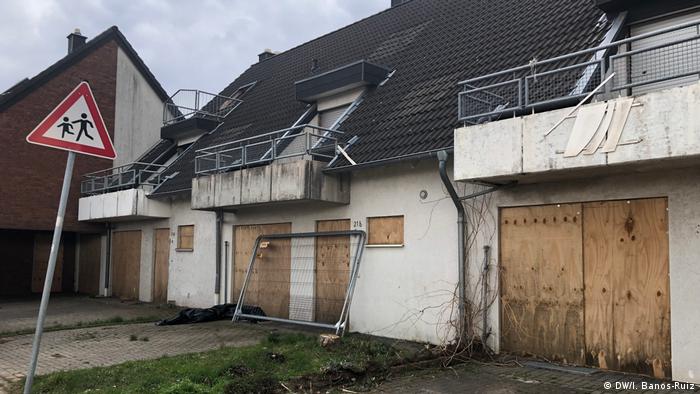
The birds are chirping in the Gables of the empty houses, in the distance, you hear machinery, as you bring walls and bricks to smash. The brown coal opencast mining Garzweiler II in the Rhineland is only a stone’s throw away from Immerath – soon, the village will crumble to dust.
Immerath was once a vibrant village community with a sports club, a Church and a kindergarten, today the Windows are boarded up shops and houses, or bricked. From the open Garage of a with ivy overgrown house in a schlachteter looking small car spooky on the street of the abandoned settlement, at the end of the demolition work has started.
More: The coal Commission has been delivered – now what?
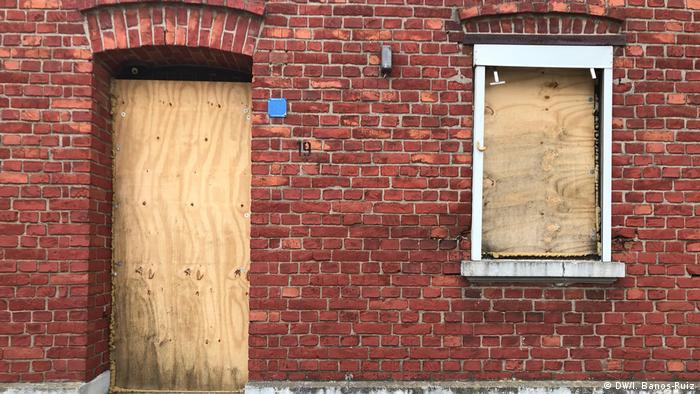
The barricaded houses of Immerath – soon you will be history
In 2017, the last inhabitants had to leave their home. Since then, the village is empty – between fields, a cemetery, and the excavator shovels of the energy group RWE, expanding the support area for decades. The suffering of the residents wear.
In the Rhenish mining area since the end of the second world war, dozens of part of centuries-old towns are like open-pit mines to the victim. And still no end in sight.
In the next nine years, other villages in the Rhineland are to be abandoned and later razed to the ground.
“Me, the spirit of the villages remind of the wars somehow to citizens. Where really entire cities empty are bombed,” says David Dresen, while he walks over the horse meadow behind the house of his family in the direction of the chicken coop.
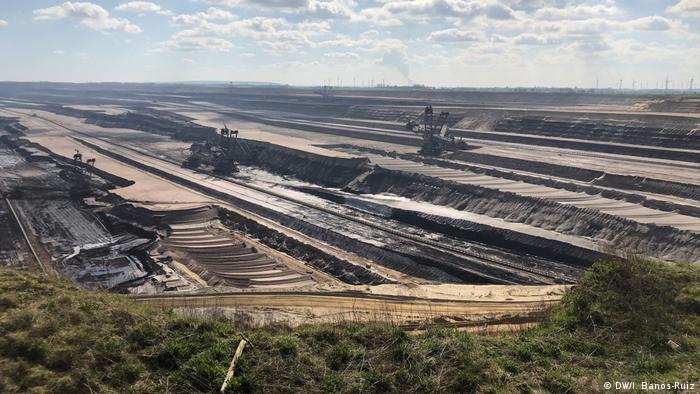
The opencast mining Garzweiler II: Here is the coal-fired power plants with the highest CO2 emissions in Europe
The family of the 27-Year-old has lived for generations – since 1862 – in Kuckum. They live on a 14,000 square meter large yard, including a vegetable garden. Kuckum is one of five villages in the area to be cleared until 2028 for coal. As compensation for RWE, the family has Dresen a plot of land in a new development area offered, the equivalent of a seventh of the land area. To leave your home voluntarily is not, therefore, for family Dresen “at all in question.”
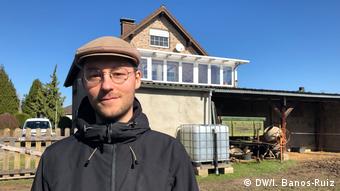
David Dresen and his family do not want to get away from your home
“This is our home, my home!” says Dresen, is committed in the land of the end “All the villages remain wide” against forced relocation by the coal industry.
Large-scale protests and lawsuits against the translocations have not resulted in success.
Still, there is enough coal available?
That doesn’t diminish the anger of the residents on the group and the state government. Especially since the end of the coal production in Germany and thus also the open-cast mine Garzweiler II in the next decade is foreseeable.
A study by the German Institute for economic research also concludes that in the already approved mining areas, sufficient quantities of Coal are present and the threatened villages could be preserved. Nevertheless, to be resettled in the Rhine area, more than 1000 people.
RWE States: “The study of unrealistic assumptions and coal, for example, quantities that are simply wrong. In addition, the study operates with the theme of resettlement Eyewash. The resettlements have been running for a very long time and the majority of the people decided long ago to resettle. To stop the process now would be irresponsible.”
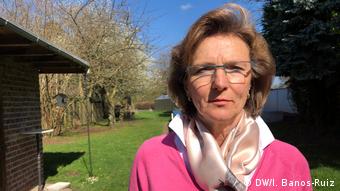
Barbara overlord hopes that you and the other residents may remain in their villages to live
The need to accompany the settlers to be “better”, that’s why he wanted to take care of, said North Rhine-Westphalia’s Prime Minister, Armin Laschet yet at a recent local visit to local media representatives.
Barbara overlord from the neighboring village of Keyenberg has noticed nothing so far. Especially since she wanted no accompaniment, as she says, but easy on your spot country wants to remain.
Already a third of the houses are empty
The family tree of your family that goes back several hundred years, all lived in Keyenberg, the neighbouring village of Kuckum. No later than 2028, which deserve to be walled up the Windows, before the excavators come. “This is an extremely emotional topic for me. What the… This is the home of my entire family. Our story,” she says.
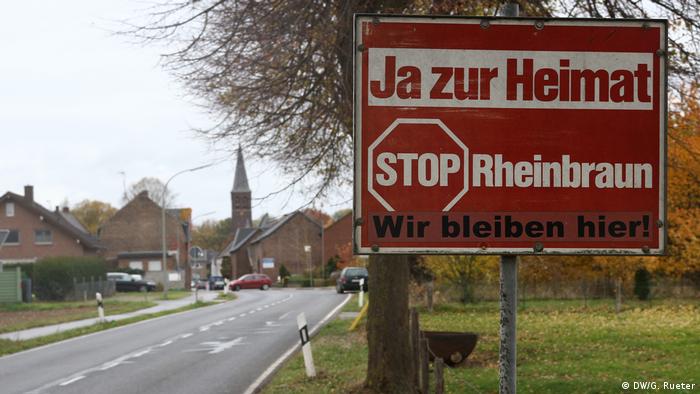
“We stay here!” Some citizens in Keyenberg fight back against the resettlement
Still Keyenberg seems to be an ordinary, quiet place. Because not yet, it is striking that already a third of all houses are empty. Several people have sold their homes already. “Also, because RWE has installed at the edge of the city is already pumping equipment for the development of the area,” said overlord. “The noise makes it simply unattractive to stay there longer. We are increasingly being displaced.”
She says she could only hope that the policy will finally realise what this means for the local people. “In these new areas, the people go. Old people die faster. The relocation is not clear.”
You’ll only go, if there is no other option. Then you will leave the site. Keyenberg as a Ghost village, where she wanted to stay.
Whether in a new building, or completely gone, the decision of the grandfather of David Dresen has made: He would rather die as his home.